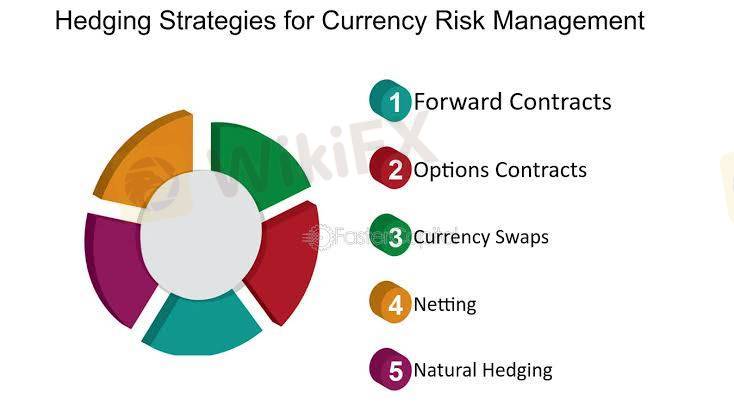
2025-02-12 16:47
IndustriCurrency Risk Management
#firstdealoftheneeyearastylz
Currency risk management refers to the practices and strategies used to mitigate the risks associated with fluctuations in currency exchange rates. Here's an overview:
Types of Currency Risk:
1. Transaction risk: risk of exchange rate fluctuations affecting the value of future cash flows.
2. Translation risk: risk of exchange rate fluctuations affecting the value of assets and liabilities.
3. Economic risk: risk of exchange rate fluctuations affecting the competitiveness of a company.
Currency Risk Management Strategies:
1. Hedging: using derivatives, such as forward contracts, options, and swaps, to lock in exchange rates.
2. Currency diversification: diversifying investments and revenues across multiple currencies.
3. Currency matching: matching assets and liabilities in the same currency.
4. Currency overlay: using a separate currency overlay strategy to manage currency risk.
5. Natural hedging: using business operations to naturally hedge currency risk.
Currency Risk Management Tools:
1. Forward contracts: binding agreements to buy or sell currency at a set rate.
2. Options: contracts giving the holder the right to buy or sell currency at a set rate.
3. Swaps: agreements to exchange cash flows in different currencies.
4. Futures: standardized contracts to buy or sell currency at a set rate.
5. Currency options and futures exchanges.
Best Practices for Currency Risk Management:
1. Identify and assess currency risk exposure.
2. Develop a currency risk management strategy.
3. Monitor and adjust the strategy as needed.
4. Use a combination of risk management tools.
5. Continuously review and improve the risk management process.
By implementing effective currency risk management strategies, companies can reduce their exposure to currency fluctuations and protect their financial performance.
Suka 0

Odogwu920
Pialang
Diskusi populer
Industri
СЕКРЕТ ЖЕНСКОГО ФОРЕКСА
Industri
УКРАИНА СОБИРАЕТСЯ СТАТЬ ЛИДЕРОМ НА РЫНКЕ NFT
Industri
Alasan Investasi Bodong Tumbuh Subur di Indonesia
Industri
Forex Eropa EURUSD 29 Maret: Berusaha Naik dari Terendah 4 Bulan
Analisis pasar
Bursa Asia Kebakaran, Eh... IHSG Ikut-ikutan
Analisis pasar
Kinerja BUMN Karya Disinggung Dahlan Iskan, Sahamnya Pada Rontok
Klasifikasi pasar

Platform

Pameran

Agen

Perekrutan

EA

Industri

Pasar

Indeks
Currency Risk Management
 Hong Kong | 2025-02-12 16:47
Hong Kong | 2025-02-12 16:47#firstdealoftheneeyearastylz
Currency risk management refers to the practices and strategies used to mitigate the risks associated with fluctuations in currency exchange rates. Here's an overview:
Types of Currency Risk:
1. Transaction risk: risk of exchange rate fluctuations affecting the value of future cash flows.
2. Translation risk: risk of exchange rate fluctuations affecting the value of assets and liabilities.
3. Economic risk: risk of exchange rate fluctuations affecting the competitiveness of a company.
Currency Risk Management Strategies:
1. Hedging: using derivatives, such as forward contracts, options, and swaps, to lock in exchange rates.
2. Currency diversification: diversifying investments and revenues across multiple currencies.
3. Currency matching: matching assets and liabilities in the same currency.
4. Currency overlay: using a separate currency overlay strategy to manage currency risk.
5. Natural hedging: using business operations to naturally hedge currency risk.
Currency Risk Management Tools:
1. Forward contracts: binding agreements to buy or sell currency at a set rate.
2. Options: contracts giving the holder the right to buy or sell currency at a set rate.
3. Swaps: agreements to exchange cash flows in different currencies.
4. Futures: standardized contracts to buy or sell currency at a set rate.
5. Currency options and futures exchanges.
Best Practices for Currency Risk Management:
1. Identify and assess currency risk exposure.
2. Develop a currency risk management strategy.
3. Monitor and adjust the strategy as needed.
4. Use a combination of risk management tools.
5. Continuously review and improve the risk management process.
By implementing effective currency risk management strategies, companies can reduce their exposure to currency fluctuations and protect their financial performance.
Suka 0
Saya juga ingin komentar
Tanyakan pertanyaan
0Komentar

Belum ada yang berkomentar, segera jadi yang pertama

Tanyakan pertanyaan
Belum ada yang berkomentar, segera jadi yang pertama